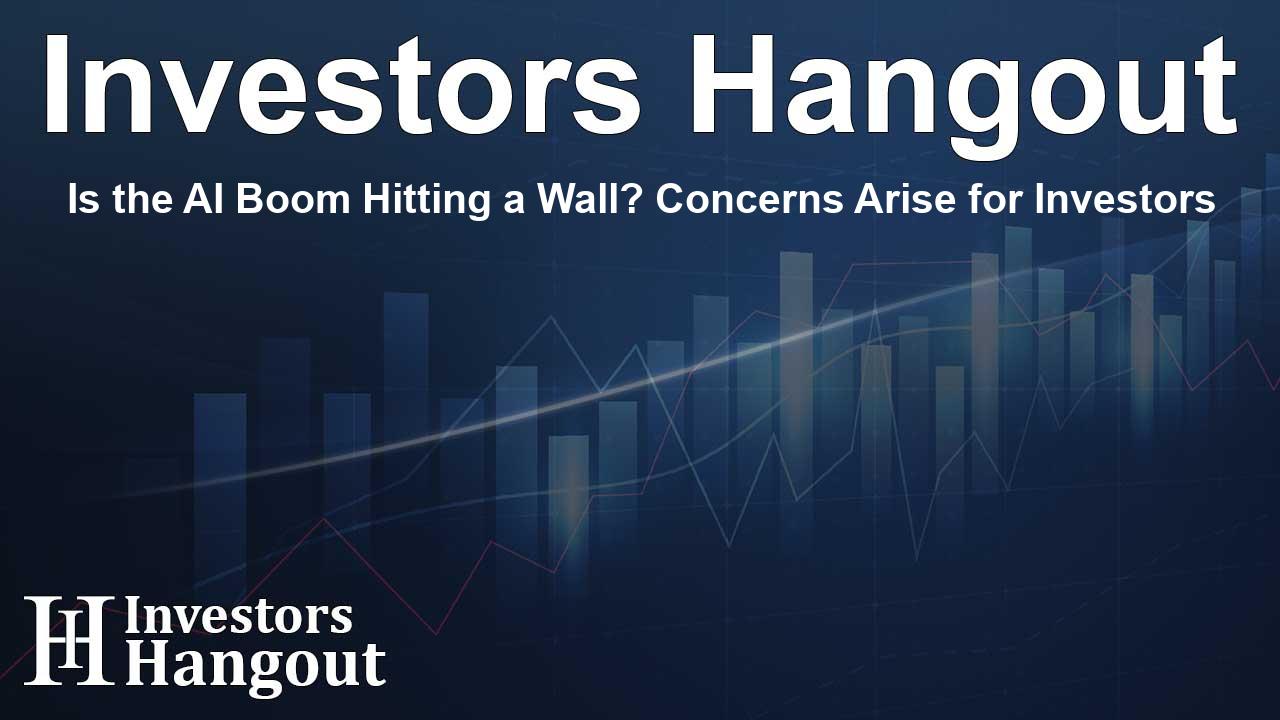Is the AI Boom Hitting a Wall? Concerns Arise for Investors

Investor Caution Amid AI Boom
Tom Essaye, the founder of Sevens Report, has expressed growing concerns over a potential stock market bubble largely driven by the ongoing artificial intelligence (AI) trade.
Market Dynamics and AI Influence
Essaye's concerns stem from the recent performance of the S&P 500, which has soared close to all-time highs after a noteworthy 28% surge since April. However, he points out that the PHLX Semiconductor Index (SOX), a key benchmark for the health of the semiconductor industry and, by extension, the AI sector, still lags behind its July peaks.
The SOX Index as an Indicator
Essaye highlights the SOX index as an essential indicator of potential risks within the market. He cautions that if the index sees a significant drop, it may signal trouble for the S&P 500. ”The historical performance comparison reveals underlying issues in this equity bull market,” he cautioned.
Signs of Economic Headwinds
In addition to the concerning market dynamics, Essaye notes troubling signs of a softening U.S. economic outlook with lower job growth numbers surfacing in recent months. These factors raise alarm bells about a possible recession looming on the horizon.
Bubble Risks in Focus
The rapid rise of the S&P 500 since late 2022 has left the equity market exposed to significant risk if economic conditions fail to remain resilient. Essaye urges investors to remain vigilant regarding economic indicators as they navigate this complex landscape.
Importance of Economic Monitoring
Investors are advised to pay close attention to evolving economic data as the market responds to current trends. While the AI trade has driven strong gains recently, the corresponding declines in the SOX index could carry broader implications for stock market health.
The Bigger Picture
As stocks rally, it’s crucial for market participants to maintain perspective on underlying economic factors rather than being solely driven by the AI narrative. Monitoring the semiconductor index will provide insights into broader technology sector dynamics.
Frequently Asked Questions
What are Tom Essaye's main concerns about the stock market?
Essaye is worried about a potential stock market bubble fueled by the AI trade and highlighted the SOX index as a key indicator of market health.
Why is the SOX index important?
The SOX index tracks semiconductor stocks and is critical to assessing the health of the AI sector and, by extension, the stock market.
What does a decline in the SOX index indicate?
A significant drop in the SOX index may signal a potential downturn for the broader market, particularly the S&P 500.
What economic signs are raising concerns?
Weak job gains and a deteriorating U.S. economic outlook are contributing to fears of a recession.
What should investors do in this climate?
It's vital for investors to closely monitor economic data and the performance of indicators like the SOX index to navigate potential risks effectively.
About The Author
Contact Owen Jenkins privately here. Or send an email with ATTN: Owen Jenkins as the subject to contact@investorshangout.com.
About Investors Hangout
Investors Hangout is a leading online stock forum for financial discussion and learning, offering a wide range of free tools and resources. It draws in traders of all levels, who exchange market knowledge, investigate trading tactics, and keep an eye on industry developments in real time. Featuring financial articles, stock message boards, quotes, charts, company profiles, and live news updates. Through cooperative learning and a wealth of informational resources, it helps users from novices creating their first portfolios to experts honing their techniques. Join Investors Hangout today: https://investorshangout.com/
The content of this article is based on factual, publicly available information and does not represent legal, financial, or investment advice. Investors Hangout does not offer financial advice, and the author is not a licensed financial advisor. Consult a qualified advisor before making any financial or investment decisions based on this article. This article should not be considered advice to purchase, sell, or hold any securities or other investments. If any of the material provided here is inaccurate, please contact us for corrections.
